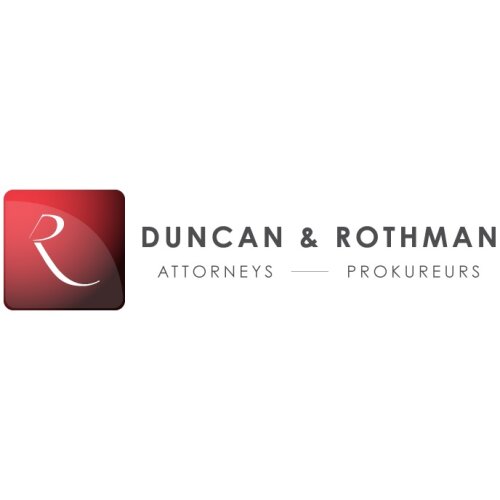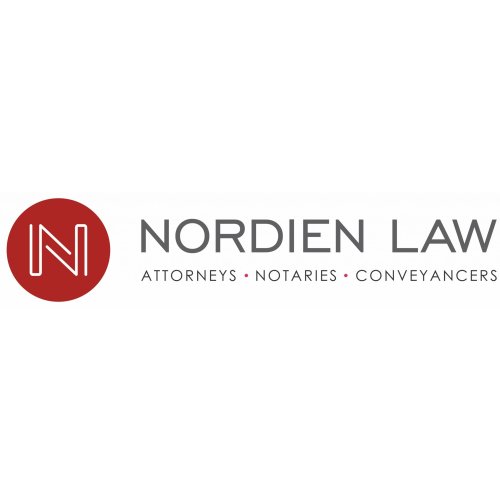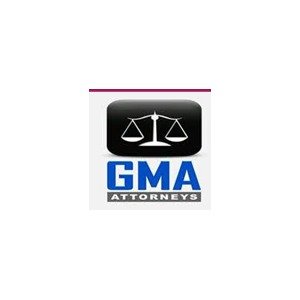Best Energy Regulatory Law Lawyers in South Africa
Share your needs with us, get contacted by law firms.
Free. Takes 2 min.
Or refine your search by selecting a city:
List of the best lawyers in South Africa
About Energy Regulatory Law in South Africa
Energy Regulatory Law in South Africa encompasses the legal framework governing the generation, transmission, distribution, and consumption of energy. It primarily focuses on electricity, gas, and petroleum sectors, ensuring compliance with national policies, environmental standards, and safety regulations. The law aims to create a balance between increasing energy demand and sustainable practices while promoting competition and protecting consumers. The main regulatory body, the National Energy Regulator of South Africa (NERSA), oversees licensing, tariff approvals, and dispute resolution among industry players. As South Africa transitions towards renewable energy and grapples with challenges like load shedding, Energy Regulatory Law has become increasingly important for both businesses and consumers.
Why You May Need a Lawyer
There are various situations where legal advice from an Energy Regulatory Law specialist can be crucial. For businesses, compliance with licensing requirements, drafting and reviewing energy supply contracts, navigating tariff disputes, and participating in renewable energy projects often require expert legal knowledge. Individuals may also need help if they are affected by energy interruptions, billing disputes, or face property issues relating to energy infrastructure like substations or pipelines. Legal professionals can guide you through regulatory applications, objections, environmental impact assessments, and represent your interests in tribunals or court if necessary. Securing legal assistance early minimizes risks and helps you understand your rights and obligations in a complex regulatory environment.
Local Laws Overview
The legal landscape for energy regulation in South Africa is primarily shaped by several key laws and policies. The Electricity Regulation Act, 2006 governs electricity supply, with NERSA handling licensing, tariff setting, and compliance enforcement. The National Energy Act, 2008 and the Gas Act, 2001 lay out frameworks for the broader energy and gas industries respectively. South Africa’s participation in the Renewable Energy Independent Power Producer Procurement Programme (REIPPPP) facilitates private investment in clean energy, subject to regulatory controls. Environmental considerations are addressed through the National Environmental Management Act (NEMA), which requires environmental assessments for new energy projects. Municipal bylaws also play a part, especially in distribution matters, while the Integrated Resource Plan (IRP) sets out the country’s energy mix strategy. Understanding these laws and their practical application is essential for parties operating or investing in the energy space.
Frequently Asked Questions
What is the role of NERSA in energy regulation?
NERSA is the main regulator for electricity, gas, and petroleum pipelines in South Africa. It issues licenses, sets tariffs, monitors compliance, and resolves disputes within the energy sector.
Do private companies need a license to generate or distribute electricity?
Yes, any entity that wishes to generate, transmit, or distribute electricity generally requires a license from NERSA unless specifically exempted under limited conditions.
How are electricity tariffs determined?
Tariffs are determined by NERSA, based on applications by utilities such as Eskom and municipalities. Tariff decisions consider cost structures, investments, and affordability for consumers.
What legal challenges do renewable energy projects face?
Renewable energy projects must comply with licensing, land use, and environmental assessment requirements. They may also face grid access issues and contractual complexities with government or private off-takers.
Can consumers or small businesses challenge high electricity bills?
Yes, consumers and businesses can dispute billing errors or excessive charges through the channels provided by their electricity supplier or escalate the matter to NERSA for resolution.
What is the process for resolving disputes between energy suppliers and customers?
Disputes are first addressed internally by the supplier. If unresolved, they can be referred to NERSA, which will investigate and issue a decision, which can subsequently be reviewed by the High Court.
Is it legally possible to generate your own power and feed it into the grid?
Yes, subject to applicable licensing or exemption requirements, and technical and safety standards set by Eskom, municipalities, and NERSA.
How does South African law address energy shortages and load shedding?
The law empowers Eskom and authorities to manage electricity load through rotations and scheduled interruptions. Regulated procedures are in place to protect essential services and provide notice to affected customers.
What are the obligations of energy companies regarding environmental protection?
All energy operators must comply with environmental legislation including conducting environmental impact assessments, obtaining necessary permits, and implementing mitigation measures to protect air, water, and land resources.
Do foreign companies face special requirements in the South African energy sector?
Foreign companies must adhere to the same licensing, local content, and regulatory requirements as local operators. They may also face additional scrutiny regarding ownership and participation in certain projects, especially in the renewable energy sector.
Additional Resources
If you need more information or guidance, consider reaching out to these organizations and referencing their materials:
- National Energy Regulator of South Africa (NERSA) - The primary regulator for electricity, piped gas, and petroleum pipelines.
- Department of Mineral Resources and Energy (DMRE) - Responsible for national energy policy and implementation.
- Eskom - The national electricity utility, with consumer information and public notices.
- South African Renewable Energy Council (SAREC) - Advocacy and updates for renewable projects and stakeholders.
- Legal Aid South Africa - Offers basic legal guidance and assistance for qualifying individuals.
- South African Local Government Association (SALGA) - Guidance and resources for municipal energy supply matters.
Next Steps
If you believe you need legal assistance in the area of Energy Regulatory Law, start by clearly outlining your issue or query. Gather all relevant documentation, such as contracts, licensing correspondence, billing records, or regulatory notices. Consult a legal professional with experience in the energy sector, as this is a highly specialized area of law. A qualified lawyer can assess your legal standing, explain applicable laws and processes, and represent you before regulators or in court if needed. Consider seeking an initial consultation to understand your options and potential outcomes. Staying informed and getting timely advice can help protect your interests, ensure compliance, and resolve disputes efficiently.
Lawzana helps you find the best lawyers and law firms in South Africa through a curated and pre-screened list of qualified legal professionals. Our platform offers rankings and detailed profiles of attorneys and law firms, allowing you to compare based on practice areas, including Energy Regulatory Law, experience, and client feedback.
Each profile includes a description of the firm's areas of practice, client reviews, team members and partners, year of establishment, spoken languages, office locations, contact information, social media presence, and any published articles or resources. Most firms on our platform speak English and are experienced in both local and international legal matters.
Get a quote from top-rated law firms in South Africa — quickly, securely, and without unnecessary hassle.
Disclaimer:
The information provided on this page is for general informational purposes only and does not constitute legal advice. While we strive to ensure the accuracy and relevance of the content, legal information may change over time, and interpretations of the law can vary. You should always consult with a qualified legal professional for advice specific to your situation.
We disclaim all liability for actions taken or not taken based on the content of this page. If you believe any information is incorrect or outdated, please contact us, and we will review and update it where appropriate.
Browse energy regulatory law law firms by city in South Africa
Refine your search by selecting a city.















